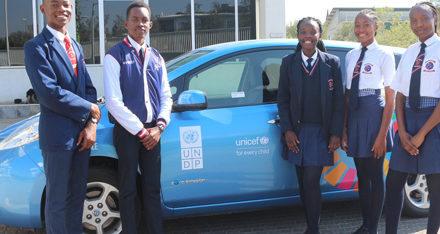
Biodiversity conservation project launched
The Ministry of Environment and Tourism together with the German Agency for International Cooperation (GIZ) on Wednesday this week launched the Resource Mobilisation for Biodiversity Conservation (ResMob) Project.
The project aims to improve Namibia’s capacity to mobilise resources for biodiversity conservation, specifically to enable it to implement the objectives outlined in the second National Biodiversity Strategy and Action Plan (NBSAP2). “The project aims for an effective implementation of updated biodiversity strategy in Namibia. The duration of the project is scheduled until March 2017 and it is commissioned by the German Federal Ministry for the Environment, Nature Conservation, Building and Nuclear Safety,” said Project Coordinator Ferdinard Mwapopi.
Also speaking at the launch, Minister of Environment and Tourism, Honorable Pohamba Shifeta said that a Ministry study indicated that an average of 2% of total government expenditure in biodiversity conservation has been invested over the last five years.
“Namibia ratified the convention of Biodiversity in 1997. This Convention aims to ensure the conservation and sustainable utilization of biodiversity as well as the fair and equitable sharing of benefits arising there-from”.
“This project is directly aligned to the first strategic goal of NBSAP 2 which seeks to address the underlying causes of biodiversity loss by mainstreaming biodiversity across government and society. The project specifically targets; improved communication, education and public awareness on issues relating to biodiversity; valuations of ecosystem services to inform decision making about the value of nature and the integration of biodiversity into national and sectoral policy making, planning, budgeting and decision making framework and the the development of a wide variety of economic incentives to promote biodiversity and sustainable use”, the minister further said.
Namibia implemented its first National Biodiversity Strategy and Action Plan (NBSAP1) from 2001 until 2010. It was internationally recognised as being one of the best first generation plans and provided a strong foundation for the sustainable management and use of biodiversity in the country, said Mwapopi. In 2012, Namibia set about developing NBSAP2 which will cover the period 2013-2022 to build upon the foundation and directly tackle the threats and challenges it faces in this area.













































